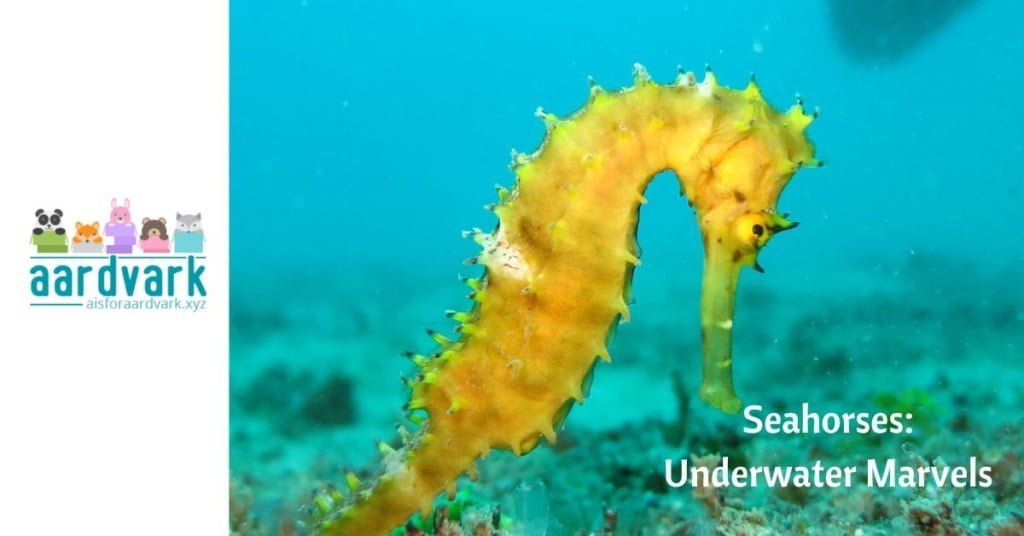Seahorses are captivating ocean dwellers who have mesmerized marine enthusiasts for centuries. They’re more than just exotic fish; they are enigmatic wonders of the deep. With their unique appearances, mysterious behaviors, and crucial ecological roles, seahorses hold a special place in our fascination with marine life.
In this article, we will dive deeper into the remarkable world of seahorses, touching on many basic and important aspects. Hopefully, it will leave you wanting to learn more about these amazing underwater creatures!
Appearance and Size
Seahorses come in a variety of shapes and sizes, making each species a distinctive marvel of evolution:
Size
From the miniature pygmy seahorses, measuring just a few centimeters (1-2 inches) in length, to the larger species like the pot-bellied seahorse, which can grow up to 35 centimeters (almost 14 inches), seahorses span a wide size range in the underwater realm.
Body Shape
Seahorses exhibit a distinctive upright posture and a curled tail, which sets them apart from other fish. Their long snouts, horse-like heads, and intricate body patterns make them instantly recognizable.
Coloration
Seahorses display an array of colors, including shades of yellow, orange, red, and brown. They are often equipped with intricate patterns or camouflaging capabilities to blend into their surroundings, too!
Habitat
Seahorses primarily live in coastal areas around the world, making their homes among coral reefs, seagrass beds, and other underwater structures. They are renowned for their preference for shallow, tropical waters, but can also be found in temperate regions.
Behaviors
Seahorses exhibit some extraordinary behaviors that make them stand out in the marine world.
Monogamy
Many seahorse species are known for their monogamous behavior, with pairs of seahorses forming lasting bonds and even engaging in intricate courtship rituals.
Mating Dance
Seahorses do a captivating “mating dance” where they engage in synchronized movements. This ends with the female transferring her eggs into a specialized pouch on the male’s abdomen.
The male then carries and nurtures the developing seahorse fry until they are ready to be released into the water.
Camouflage
Seahorses have the remarkable ability to change color to blend in with their surroundings, offering them protection from potential predators.
Importance in Marine Ecosystems
Here are a couple of ways seahorses play a crucial role in marine ecosystems:
Predator Control
Seahorses help maintain the health of seagrass beds by feeding on small crustaceans, which can otherwise overgraze and destroy these essential habitats.
Biodiversity Indicator
The presence of seahorses in a marine environment can indicate the overall health and biodiversity of that ecosystem. Their decline can serve as an early warning sign of potential environmental issues.
Intriguing Facts
Seahorses boast some incredible attributes. First, they’re remarkably slow swimmers, despite their elegant appearance. In fact, they rely on their ability to anchor themselves to underwater structures to avoid being swept away by strong currents.
They also have a unique Reproductive Process: Seahorses are the only animal species in which the males become pregnant and give birth.
Sadly, many seahorse species are threatened by habitat loss and the demand for them in the pet trade and traditional medicine, making their conservation a pressing concern.
Conclusion
Seahorses, with their unique appearance, captivating behaviors, and ecological significance, have a special place in our fascination with marine life. These captivating creatures continue to intrigue and inspire marine enthusiasts and conservationists alike!


